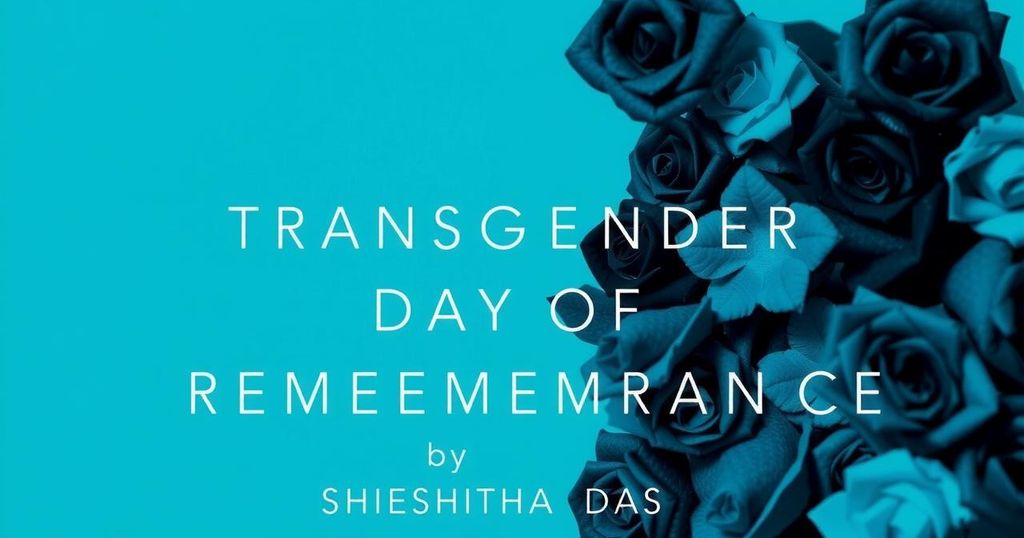On Transgender Day of Remembrance, Shreshtha Das reflects on technology-facilitated gender-based violence against transgender individuals, underscoring the urgent need for action against rising transphobia. This year has seen an alarming increase in laws targeting trans rights, particularly in the U.S. and Uganda, while digital spaces are fraught with both community support and significant risks. The article advocates immediate steps to protect LGBTI individuals and highlights the interplay between online threats and real-life consequences, urging collective action to combat discrimination and violence.
The echoes of “trans rights are human rights” reverberated through the streets as I joined a demonstration aimed at standing against the relentless tide of transphobia. In this atmosphere of defiance and hope, we reclaimed our identities amidst the shadowy landscape of rights being stripped away. Yet, this year has been particularly perilous for transgender individuals; initiatives targeting their autonomy are being introduced globally, threatening access to essential services and protections. In the US alone, the American Civil Liberties Union tallies a staggering 132 anti-trans bills in motion.
The digital realm, paradoxically, offers refuge and peril for transgender individuals, as I learned from a recent conversation with Charles, a Ugandan trans activist. Following Uganda’s Anti-Homosexuality Act, individuals like Charles have sought solace in online spaces, which become vital for mental health and community. However, these digital communities are not without risk; they have transformed into battlegrounds for technology-facilitated gender-based violence (TfGBV), exposing users to intimidation and harassment from both state and private actors.
The stories shared by trans activists underline the grave reality of digital abuse. Lucien, another Ugandan trans individual, described relentless threats and attacks that blurred the lines between online and physical violence. The chilling pattern of aggression persists; aggressive messages morph into real-life dangers, endangering the lives of individuals simply seeking to express themselves. Many are forced to retreat into silence, increasingly isolated, their mental health unraveling beneath the weight of pervasive fear.
On this somber Transgender Day of Remembrance, we are called upon to act decisively. We must combat the culture of hate before we lose another person to transphobia. Let’s stand together and urge the Ugandan government to repeal oppressive laws, ensuring safety for LGBTI individuals both online and offline. By championing their rights, we can create an environment where everyone has the ability to live authentically, free from discrimination and violence. The time for action is now; let us stop the hate before it’s truly too late.
Transgender Day of Remembrance serves as a poignant reminder of the ongoing struggles faced by the transgender community amidst rising global hostility. This year has seen a significant roll-back of protections and rights for transgender individuals, particularly in countries with emerging anti-LGBTQ laws. The alarming state of digital abuse and technology-facilitated gender-based violence sheds light on the dual nature of online platforms, which can be both supportive spaces and sites of rampant harassment. As activism in digital spaces grows, pressing challenges remain that mirror ongoing societal issues that need urgent attention.
On Transgender Day of Remembrance, the urgency to confront the escalating violence against transgender individuals becomes starkly evident. It calls on each of us to engage in advocacy and to demand a change in the narrative surrounding trans rights. By standing against hate through activism, legislative change, and community support, we can build a safer, more inclusive world for all. The time to act is now; we must halt the hate before more lives are lost.
Original Source: www.amnesty.org



